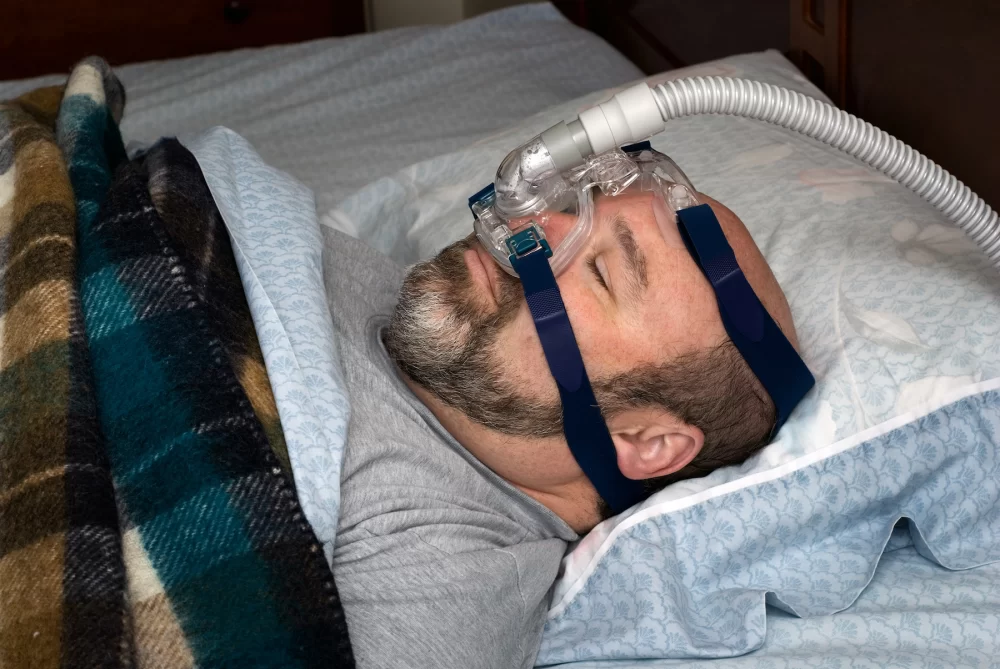
Best Sleep Apnea Treatments for People with Obesity-Hypoventilation Syndrome
- Understanding Sleep Apnea and Obesity-Hypoventilation Syndrome
- CPAP Therapy: The Most Effective Treatment
- Lifestyle Changes to Improve Sleep Apnea
- Bariatric Surgery as a Long-Term Solution
- Medications and Other Treatments
- Finding the Best Sleep Apnea Treatment
1. Understanding Sleep Apnea and Obesity-Hypoventilation Syndrome
People with obesity are at a higher risk of developing sleep apnea, particularly obesity-hypoventilation syndrome (OHS). This condition occurs when excess weight leads to inadequate breathing during sleep, resulting in low oxygen levels and high carbon dioxide levels.
How Obesity Affects Breathing
Excess fat around the chest and abdomen can make it harder for the lungs to expand, leading to shallow breathing. Over time, this can cause chronic fatigue, morning headaches, and serious complications such as heart disease and respiratory failure.
Signs You May Have OHS
If you experience loud snoring, daytime drowsiness, shortness of breath, or difficulty concentrating, you may have OHS. A sleep study can help diagnose the severity of the condition.
2. CPAP Therapy: The Most Effective Treatment
Continuous Positive Airway Pressure (CPAP) therapy is the most recommended treatment for both sleep apnea and obesity-hypoventilation syndrome. A CPAP machine provides a constant stream of air to keep the airway open during sleep.
Benefits of CPAP Therapy
Studies show that CPAP therapy can significantly improve oxygen levels, reduce daytime fatigue, and lower the risk of heart disease. Many patients notice a difference within just a few nights of use.
Overcoming CPAP Challenges
Some people find CPAP masks uncomfortable or experience dry mouth and nasal congestion. However, modern CPAP devices offer features like humidifiers and different mask styles to improve comfort.
3. Lifestyle Changes to Improve Sleep Apnea
Making key lifestyle changes can help reduce sleep apnea symptoms and improve overall health.
Weight Loss and Exercise
Obesity is a major contributor to OHS and sleep apnea. Losing weight can significantly reduce airway obstruction and improve breathing. Regular physical activity, even walking for 30 minutes a day, can make a difference.
Healthy Sleeping Positions
Sleeping on your back can worsen airway blockage. Switching to side-sleeping can help reduce snoring and improve airflow.
Avoiding Alcohol and Sedatives
Alcohol and sedatives relax throat muscles, increasing the risk of airway collapse. Reducing intake, especially before bedtime, can improve sleep quality.
4. Bariatric Surgery as a Long-Term Solution
For people with severe obesity and OHS, bariatric surgery can be a life-changing option. This procedure helps with significant weight loss, which can improve or even eliminate sleep apnea symptoms.
Types of Weight Loss Surgery
Common procedures include gastric bypass and sleeve gastrectomy. These surgeries limit food intake and promote weight loss, helping to reduce breathing issues.
Success Rates and Benefits
Many patients experience dramatic improvements in sleep apnea within months after surgery. Some are even able to discontinue CPAP therapy altogether.
5. Medications and Other Treatments
While lifestyle changes and CPAP therapy are the primary treatments, some people may benefit from medications or alternative therapies.
Medications to Support Breathing
Doctors may prescribe medications that stimulate breathing or help manage related conditions such as high blood pressure and diabetes.
Oxygen Therapy
In severe cases, supplemental oxygen therapy may be used to improve oxygen levels during sleep.
6. Finding the Best Sleep Apnea Treatment
Managing sleep apnea and obesity-hypoventilation syndrome requires a comprehensive approach. CPAP therapy is highly effective, but long-term strategies such as weight loss and healthy lifestyle changes are essential for lasting improvement.
If you or a loved one struggles with sleep apnea and obesity, consult a sleep specialist to determine the best treatment plan. Explore our recommended CPAP machines, weight management programs, and expert guidance to start improving your sleep today.







 Buena Park Smile Dental Group4.0 (37 review)
Buena Park Smile Dental Group4.0 (37 review) Jared B. Williams D.D.S.4.0 (18 review)
Jared B. Williams D.D.S.4.0 (18 review) Thornwood Family Dental - South Elgin4.0 (198 review)
Thornwood Family Dental - South Elgin4.0 (198 review) Glamorous Smile Dental Spa5.0 (17 review)
Glamorous Smile Dental Spa5.0 (17 review) Midwestern University Dental Institute3.0 (101 review)
Midwestern University Dental Institute3.0 (101 review) Drs. Trava, Oh, Petix, Shon & Yang4.0 (21 review)
Drs. Trava, Oh, Petix, Shon & Yang4.0 (21 review) The Importance of Oral Health Education During Pregnancy for a Healthy Pregnancy
The Importance of Oral Health Education During Pregnancy for a Healthy Pregnancy Best Tips for Brushing Your Teeth Properly for Healthy Gums: Essential Techniques for Oral Health
Best Tips for Brushing Your Teeth Properly for Healthy Gums: Essential Techniques for Oral Health Why Skipping Dental Checkups Can Lead to Bigger Oral Health Problems
Why Skipping Dental Checkups Can Lead to Bigger Oral Health Problems Advantages of Porcelain Dental Restorations
Advantages of Porcelain Dental Restorations How Can Diabetes Cause Tooth and Gum Problems? Preventing and Managing Oral Health Issues
How Can Diabetes Cause Tooth and Gum Problems? Preventing and Managing Oral Health Issues Healthy Habits for Promoting Good Oral Health and Hygiene: Tips for a Healthy Smile
Healthy Habits for Promoting Good Oral Health and Hygiene: Tips for a Healthy Smile